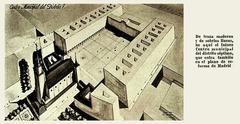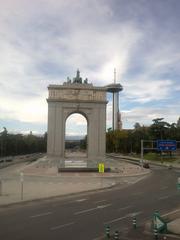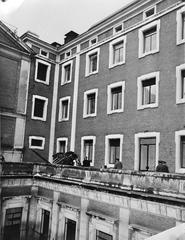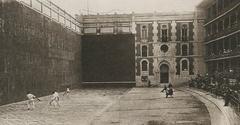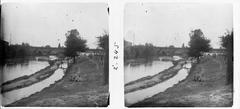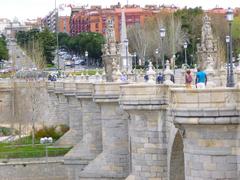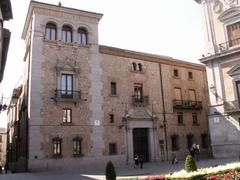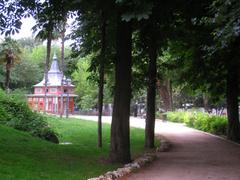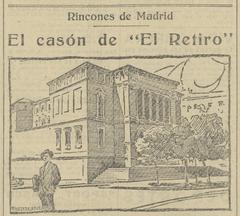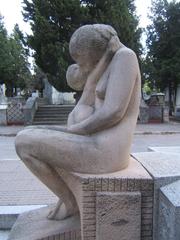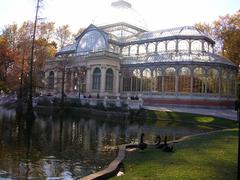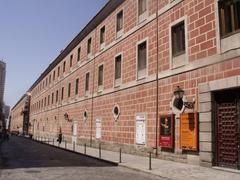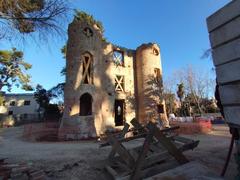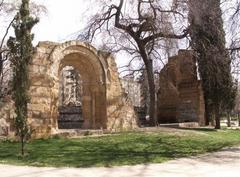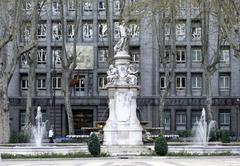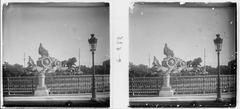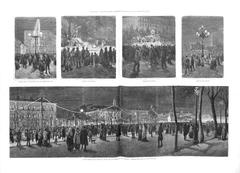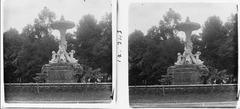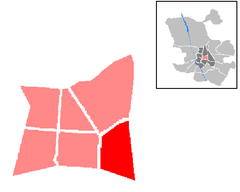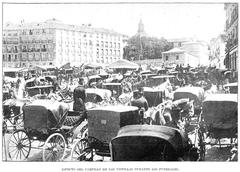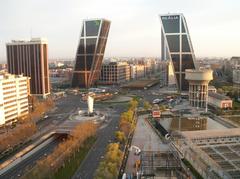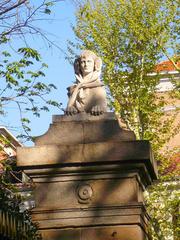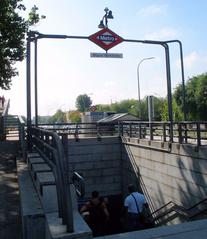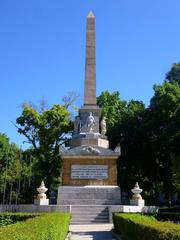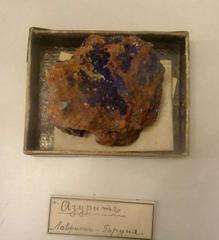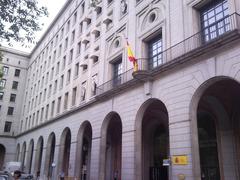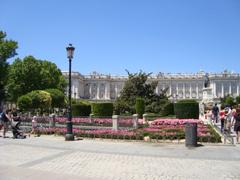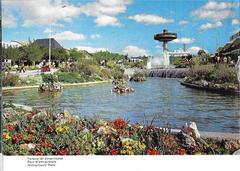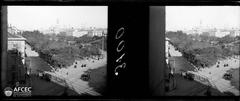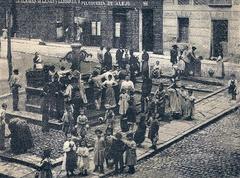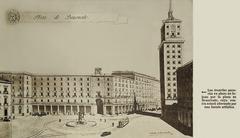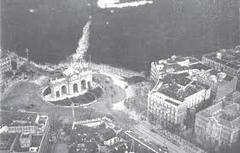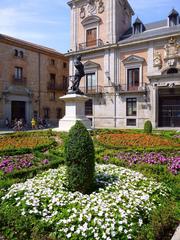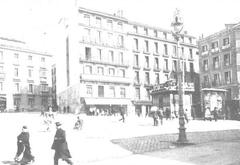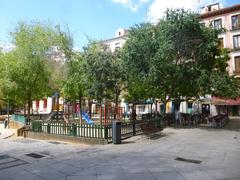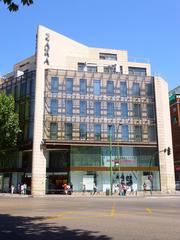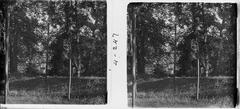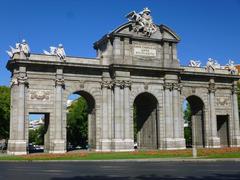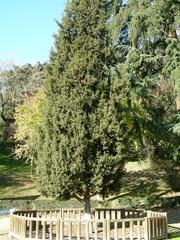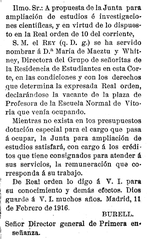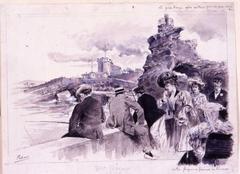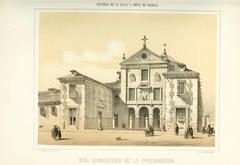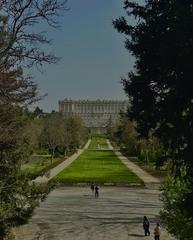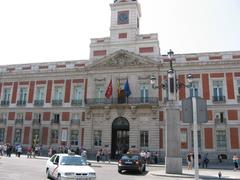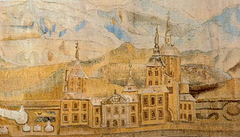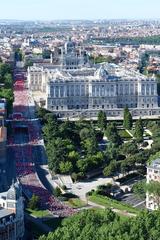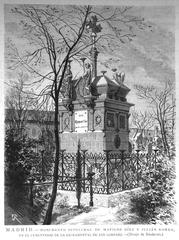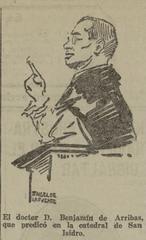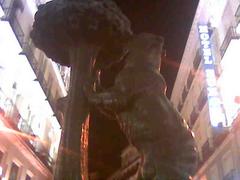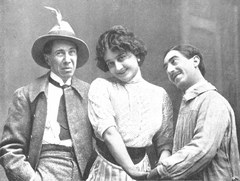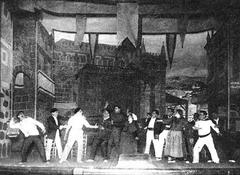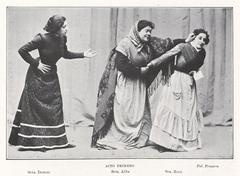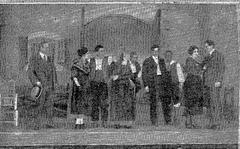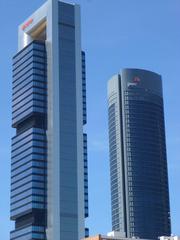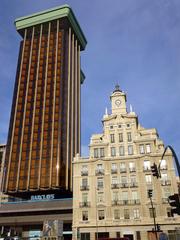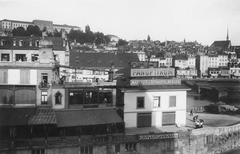
Visiting the Cárcel de Mujeres de Ventas, Madrid: Tickets, Hours, and Comprehensive Guide
Date: 03/07/2025
Introduction
The Cárcel de Mujeres de Ventas (Ventas Women’s Prison) in Madrid stands as a profound symbol of Spain’s turbulent 20th-century history. While the original prison building was demolished in the 1970s, its legacy endures through memorial gardens, commemorative plaques, digital archives, and a vibrant movement to preserve the memory of the women who suffered and resisted within its walls. This guide offers in-depth historical context, practical visitor information, and resources for those seeking to engage with this significant chapter of Madrid’s past.
Table of Contents
- Introduction
- Historical Overview
- Memory, Symbolism, and Transformation
- Visiting the Site Today
- Tips for Visitors
- Educational and Reflective Opportunities
- Frequently Asked Questions (FAQ)
- Conclusion
- References and Further Reading
Historical Overview
Origins and Construction
The Cárcel de Mujeres de Ventas was conceived in the early 1930s as a model institution for the humane rehabilitation of women prisoners. Spearheaded by Victoria Kent, Spain’s first female Director General of Prisons, the facility reflected cutting-edge penal reform, with rationalist architecture, educational initiatives, and an emphasis on dignity over punishment (Parkes, 2020). Designed by architect Manuel Sainz de Vicuña y Camino, the prison was constructed between 1931 and 1933, featuring well-ventilated cells, children’s galleries, and terraces for outdoor activity (agoragetafe).
The Second Republic: Reform and Innovation
Inaugurated in 1933, the prison symbolized the Second Spanish Republic’s commitment to progressive penal reform. Religious staff and traditions were replaced with secular administration, and efforts focused on education, vocational training, and psychological support for inmates (Parkes, 2020). The institution was intended to house around 500 women in humane conditions.
Civil War and Francoist Repression
The outbreak of the Spanish Civil War in 1936 transformed the prison’s role. Initially used to detain male prisoners, it soon became a major site of political repression, particularly after Franco’s victory in 1939 (El Diario, 2023). The population surged to over 4,000 women—far beyond capacity. Many were held for political reasons, often facing dire conditions, food shortages, and forced separations from their children. The “Trece Rosas” (Thirteen Roses), a group of young women executed in 1939, became enduring symbols of resistance (BBC Mundo, 2018).
Memory, Symbolism, and Transformation
Although the physical structure was demolished in the late 20th century, the legacy of the Ventas prison survives through:
- Memorial gardens (Jardines de las Mujeres de Ventas), opened in 2018, which reclaim the site for public memory and reflection (callejeartemadrid.com).
- Commemorative plaques and temporary installations, especially during anniversaries and public memory events (Madrid City Council, 2019).
- Digital archives and oral histories that preserve testimonies of former inmates and educational materials (carceldeventas.org).
- Annual commemorations and public events led by grassroots organizations, historians, and descendants of former prisoners (Asociación Trece Rosas).
Visiting the Site Today
Jardines de las Mujeres de Ventas
The original prison site has been transformed into the Jardines de las Mujeres de Ventas, a public park dedicated to the memory of incarcerated women. The garden includes symbolic elements such as a central olive tree—signifying peace and endurance—and offers a peaceful space for reflection (callejeartemadrid.com).
Opening Hours:
Daily, 8:00 AM to 10:00 PM
Admission:
Free
Accessibility:
Wheelchair accessible, with paved paths and accessible public transport nearby.
Location and Accessibility
- Address: Near Calle Marqués de Mondéjar, 29, in the Ventas neighborhood of Madrid.
- Nearest Metro: Ventas station (Lines 2 and 5), a short walk from the gardens.
- Getting There: Easily accessible by public transport from central Madrid.
Visitor Information
- What to Expect: There are no remaining structures of the original prison. The gardens are tranquil and suitable for reflection, with occasional commemorative plaques and symbolic installations.
- Commemorative Events: Local cultural centers and memory organizations organize events, especially on International Women’s Day (March 8) and during November commemorations (elsaltodiario.com, rivasciudad.es).
- Guided Tours: While there are no permanent guided tours, memory walks and temporary exhibitions are periodically organized. Check with local associations and carceldeventas.org for updates.
Nearby Attractions
- Plaza de Toros de Las Ventas: Iconic Madrid bullring, with tours and exhibitions.
- Parque de la Fuente del Berro: A historic park for relaxation.
- Centro Cultural La Corrala: Hosts memory-related events and exhibitions.
- Museo de la Historia de Madrid: Offers broader context on the city’s past.
- National Archaeological Museum: Nearby for further cultural exploration.
Tips for Visitors
- Plan Ahead: Confirm event dates and availability of special tours in advance.
- Combine Visits: Pair your visit with nearby museums or parks for a richer experience.
- Respect the Site: Remember this is a place of memory—be considerate, especially during commemorative events.
- Use Digital Resources: Explore the extensive archives, testimonies, and virtual tours available at carceldeventas.org.
- Language: Most resources and events are in Spanish, but some materials are available in English.
Educational and Reflective Opportunities
The site is used by school groups and researchers to study women’s experiences during Francoism, state repression, and the evolution of penal reform in Spain. Educational programs, oral histories, and academic workshops—sometimes hosted at local cultural centers—provide deeper engagement with these themes (Asociación Memoria y Libertad).
Frequently Asked Questions (FAQ)
Q: Can I visit the original prison building?
A: No, the building was demolished and replaced with residential apartments. Only the memorial gardens and plaques remain.
Q: Are there guided tours?
A: There are no permanent tours, but local history groups occasionally organize memory walks and events. Check carceldeventas.org and local cultural centers.
Q: Are there visiting hours or tickets required?
A: The memorial gardens are open daily from 8:00 AM to 10:00 PM. Admission is free.
Q: How do I get there by public transport?
A: Take Metro Lines 2 or 5 to Ventas station. The gardens are a short walk away.
Q: Is the site accessible for people with disabilities?
A: Yes, the park has paved paths and accessible facilities.
Q: Where can I learn more about the prison’s history?
A: The best resource is carceldeventas.org, which offers digital archives, testimonies, and educational materials.
Conclusion
The Cárcel de Mujeres de Ventas endures as a crucial site of memory, reflecting Spain’s struggles with repression, resistance, and the quest for justice. While the original prison is gone, the memorial gardens, digital projects, and community events ensure that the voices and experiences of those once held within its walls continue to resonate. Visiting the site—physically or virtually—offers a unique opportunity to reflect on the resilience of women in the face of adversity and on the importance of historical memory in shaping a democratic society.
For a meaningful visit, combine your exploration with nearby cultural sites, engage with local memory initiatives, and use digital resources to deepen your understanding. Download the Audiala app for curated audio tours and the latest updates on Madrid’s historical sites.
References and Further Reading
- Parkes, 2020, Victoria Kent and the Second Spanish Republic
- Folleto Ventas Prison, 2020
- European Memories: Ventas Prison Website
- El Diario, 2023, La cárcel de Ventas, mujeres y represión franquista
- El País, 2023, La cárcel de mujeres de Ventas
- BBC Mundo, 2018, Las Trece Rosas
- Asociación Trece Rosas
- Madrid City Council, 2019, Memorial Plaque Installation
- carceldeventas.org
- Callejeartemadrid.com, Jardines de las Mujeres de Ventas
- Asociación Memoria y Libertad
- elsaltodiario.com
- rivasciudad.es
- petitfute.com
- archive.org




